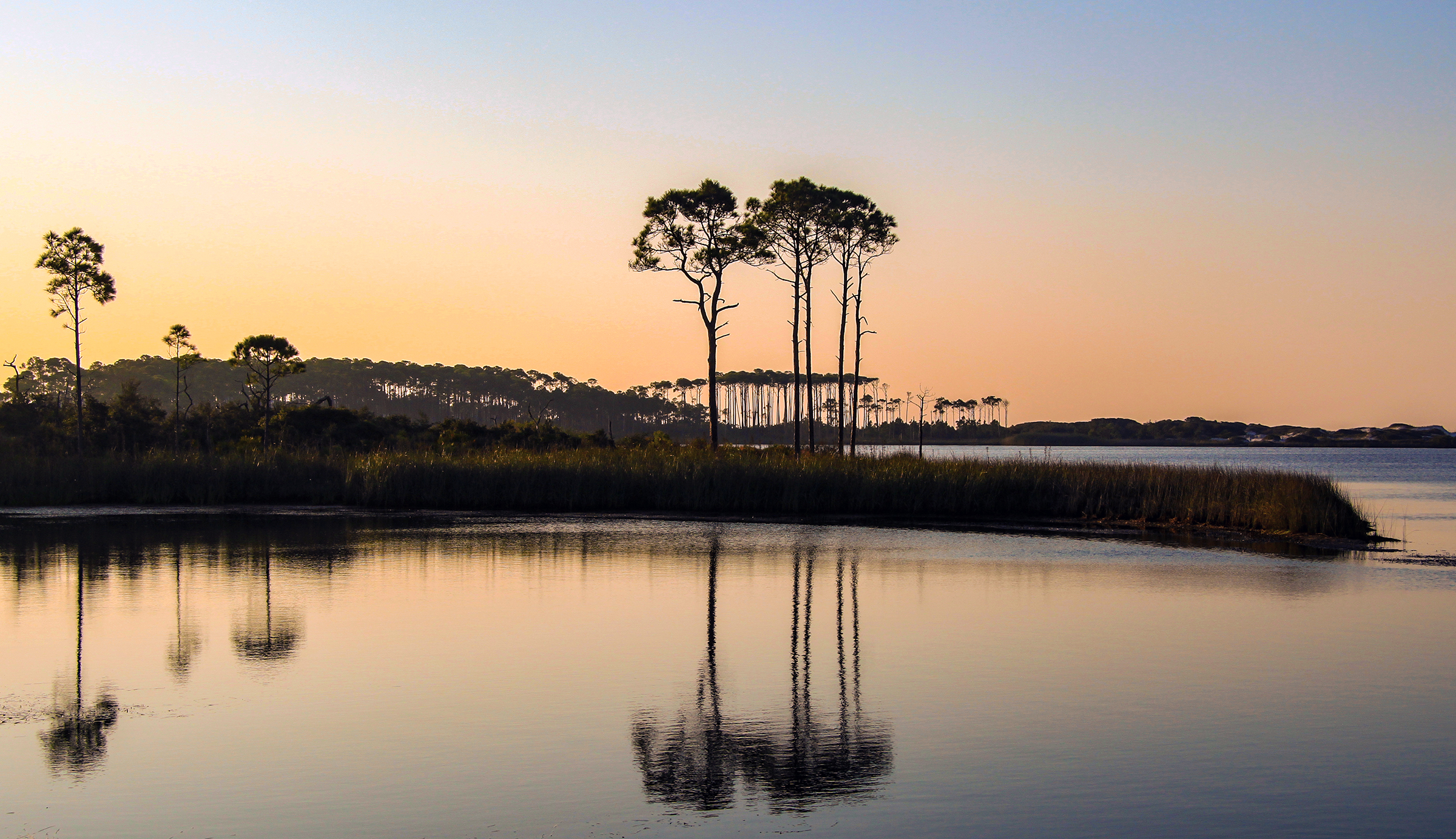Florida's Coastal Dune Lakes: A Rare Natural Phenomenon
Coastal dune lakes are one of the rarest natural features on the planet. These extraordinary bodies of water are found in only four countries worldwide and two states in the U.S.—Florida and Oregon. What makes Walton County, Florida, so unique is that it's the only place in the state where you can witness this incredible phenomenon, home to nearly all 15 of Florida's recognized coastal dune lakes.
Why Are Coastal Dune Lakes Unique?
Freshwater sources like rainfall, groundwater, and streams feed the lakes. However, when their water levels rise high enough, the sand berms separating them from the Gulf of Mexico break, forming outfalls—dynamic channels where water flows between the lakes and the Gulf. Because saltwater, plants, and marine animals travel up the outfalls, the results are a unique brackish ecosystem. The mix of salt and freshwater varies for each lake, making every lake a one-of-a-kind natural habitat.
This constant interplay of freshwater and saltwater creates a rare and vibrant ecosystem where species like freshwater fish, migratory birds, and even the occasional alligator coexist with saltwater species.
Exploring the Coastal Dune Lakes of 30A
Each coastal dune lake along 30A has its own personality, varying in size, shape, and accessibility. While some are tucked away for a more private experience, most are open to the public and offer an array of activities.
If you're ready to explore these natural wonders, you'll find plenty of public access points and opportunities for adventure. Need equipment like kayaks, canoes, or paddleboards? Check out these handy resources to get started:
To inspire your visit, here are some highlights of must-visit lakes with easy public access:
- Western Lake: Located in Grayton Beach State Park and WaterColor, this 200-acre lake is a favorite for kayaking, paddle boarding, and birdwatching. With public boat ramps and rentals available, enjoying the serene waters is easy.
- Deer Lake: Nestled within Deer Lake State Park, this 38-acre gem offers stunning outflows and lush surroundings. You can access it via a scenic boardwalk that winds through the park's natural beauty.
- Eastern Lake: Located in Seagrove Beach, this 62-acre lake is a dream come true for paddleboarders and nature enthusiasts. A public boat launch and beach access make it a great spot to explore.
- Powell Lake: At 800 acres, Powell Lake is Florida's largest coastal dune lake. It is unique in that it allows jet skis and motorboats. It's the only lake not entirely within Walton County, situated in neighboring Bay County and partially within Camp Helen State Park.
Living on a Coastal Dune Lake
In addition to serene views, most homes on the lakes provide a bit more exclusivity and privacy to accommodate waterfront setbacks and space between privately built docks. These unique living opportunities come in many shapes and styles.
Contact us to view all 30A Dune Lakes real estate currently available.

Conservation Measures in Walton County
Owners of Coastal Dune Lake properties are given specific guidelines to help protect the natural habitat, prevent erosion, and protect the water quality of the lakes.
To implement the protection of the lakes, Walton County provides specific building and landscaping regulations to minimize environmental impacts. In addition, the Florida Department of Environmental Protection (FDEP) oversees the laws and permits concerning the construction of structures like decks and docks on or near the lakes, aiming to reduce disturbance to the delicate balance of these unique environments.
Learn more about what to expect as an owner in protecting these precious local gems:
- Property Owners' Guide for Coastal Dune Lakes
- Coastal Dune Lakes Vegetation Guide
- 3 Steps to Building Environmentally Responsible Docks & Amenities
